
Dear Friends,
We hope this finds you well, and you are taking time to look after yourselves and each other during what can be a challenging period for many. With the election approaching and the constant flow of news and information, we encourage you all to prioritise your social and emotional wellbeing. Remember to take breaks from media, connect with community, and engage in cultural practices that ground and nourish you.
As we navigate this period, we recognise it can be difficult to process all available information. Some of our team members have found resources like Build a Ballot and Vote Compass helpful in preparing for election day, while also setting boundaries around their engagement with social media content.
Below you'll find updates on what our Institute team has been up to recently and be sure to check out the opportunities section below to see what opportunities are available for First Nations women, girls and gender-diverse mob to engage in.
We recently acknowledged Trans Day of Visibility, honouring the strength, resilience and leadership of First Nations trans and gender-diverse communities and look toward IDAHOBIT (International Day Against Homophobia, Biphobia, Intersexism and Transphobia) on May 17th. First Nations gender justice cannot be achieved without justice for First Nations trans women and gender-diverse peoples. An inclusive and respectful movement of all gender identities is critical to achieving gender justice and equality.
We are privileged to have Aunty Kooncha Brown, a proud Yuin Sistergirl, as a valued member of our Advisory Council. Aunty Kooncha has championed justice, inclusion and visibility for Sistergirls, Brotherboys and all First Nations LGBTQIA+SB people for decades. She plays a vital role in guiding our work, ensuring that care, cultural strength and self-determination are always centred. Her unwavering advocacy has helped shape safe and affirming spaces and break down barriers to create lasting change.
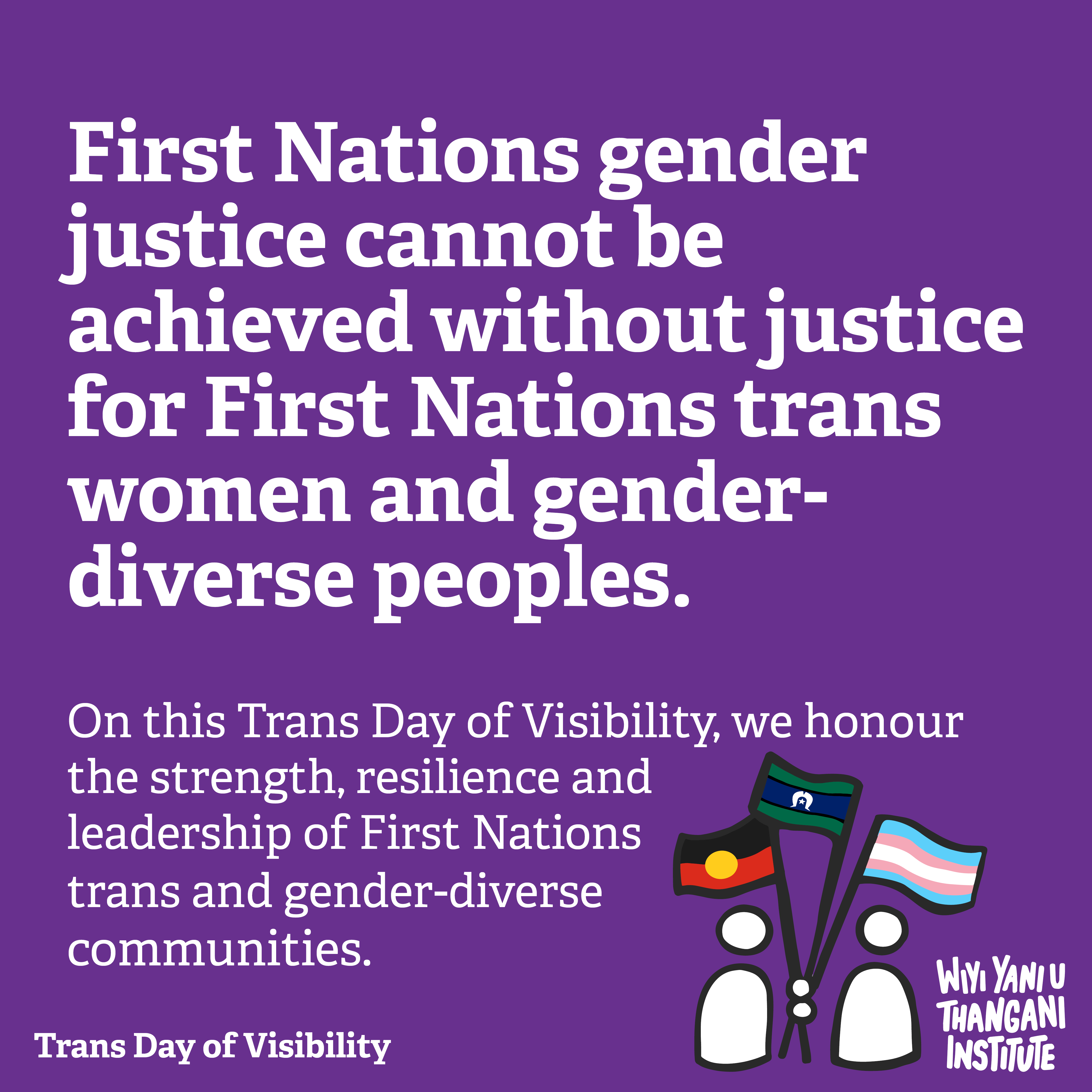
We honour Aunty Kooncha and all trans and gender-diverse mob who continue to lead with love and pride. Their diverse experiences hold the solutions for dismantling prejudicial systems and creating better ways of living for everyone.
At the heart of our Institute is our Ways of Working, including "Embracing all our identities" - celebrating our multiple and vibrant identities brings different perspectives and ways of expressing ideas and knowledge. Our diversity strengthens us all as a collective.
As we mark dates like IDAHOBIT and Trans Day of Visibility, we stand firm in building an inclusive and respectful movement where all gender identities are celebrated as essential to achieving gender justice and equality.
Chloe Wegener (she/her), Project Coordinator, recently attended the Women’s Climate Congress Victorian Congress on Dja Dja Wurrung Country, Castlemaine, Victoria.
Throughout the weekend, Chloe wove powerful stories of First Nations women's knowledge in climate solutions, emphasising how our matriarchal knowledges offer sophisticated approaches to restore balance. Many participants experienced "aha moments" as they began to understand the holistic nature of First Nations care work and its critical role in addressing environmental challenges.
During her presentation, Chloe emphasised: "For First Nations women, balance extends to how we understand care and sustainability. These concepts aren't siloed—they're not just about childcare or carbon emissions. They encompass whole-of-life relationships: kinship connections, land management, and generational wellbeing."
"The solutions to our climate crisis already exist within First Nations women's knowledge systems," Chloe reminded participants. "By embedding these approaches in your everyday work, you aren't just recognising their value—you are actively participating in restoring the balance needed for our collective wellbeing."
Learn more about the Women’s Climate Congress

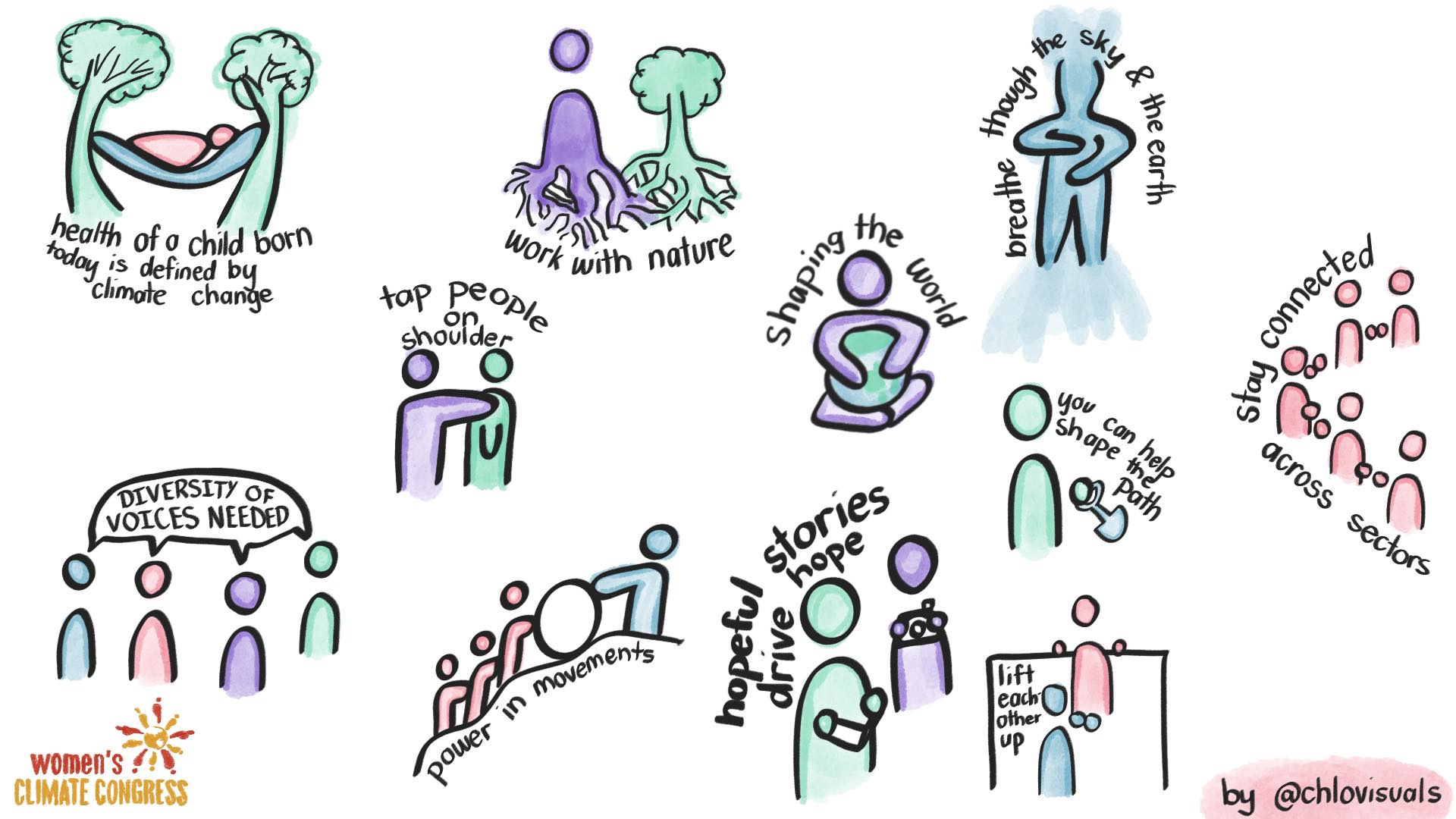
The concept of Ember Connect was imagined by a small network of First Nations women who simply wanted to maintain their enduring connection with each other. The collective of women, bound by a common passion and vision, made themselves available to one another in an effort to help mobilise connections and opportunities.
The result was nothing short of inspirational. Following months of research and hours of candid conversations, Ember Connect emerged for all First Nations women to harness a powerful network of women dedicated to connect, elevate and ignite possibilities for members.
Ember Connect is a First Nations-led collective that elevates First Nations women to greater possibilities. The online platform, Ember Connect Live, is a living, breathing meeting place where we can gather, share stories, learn, and make genuine connections with other women.
Ember Connect has also launched "Wildfire", a new podcast sharing stories and insights from their community.
Join the Ember Connect Community
Listen to the Wildfire Podcast
We're delighted to share these film screening opportunities with our community. Please note: These events are hosted by external organisations.
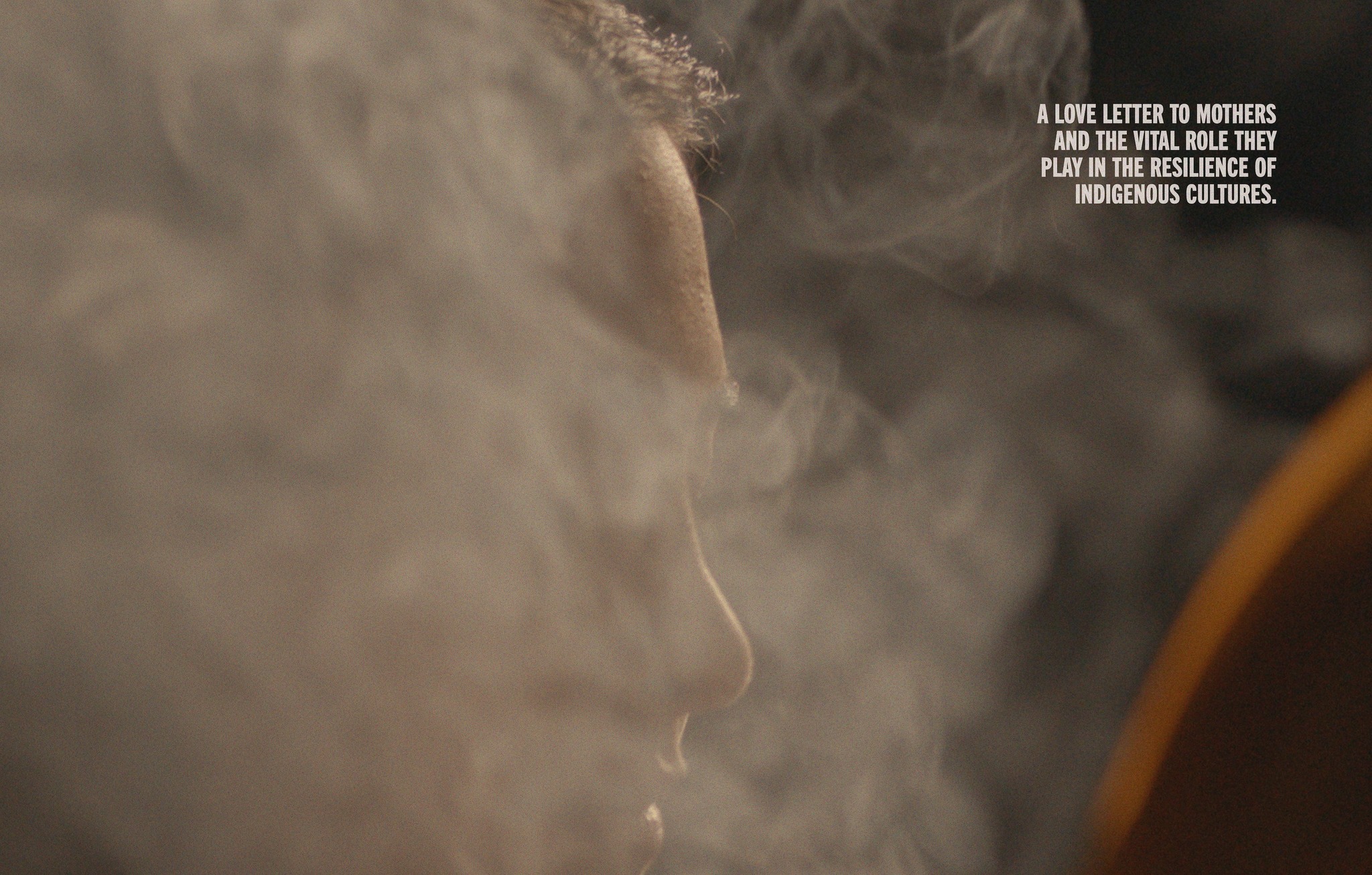
This powerful collaboration between Worimi filmmaker Genevieve Grieves and Palestinian artist Aseel Tayah brings eight First Nations and Palestinian women together to share stories of colonial trauma and mothering as resistance.
Be part of the global premiere by hosting a community screening event. Your gathering will join others across the world in witnessing these important stories and envisioning futures beyond colonisation.
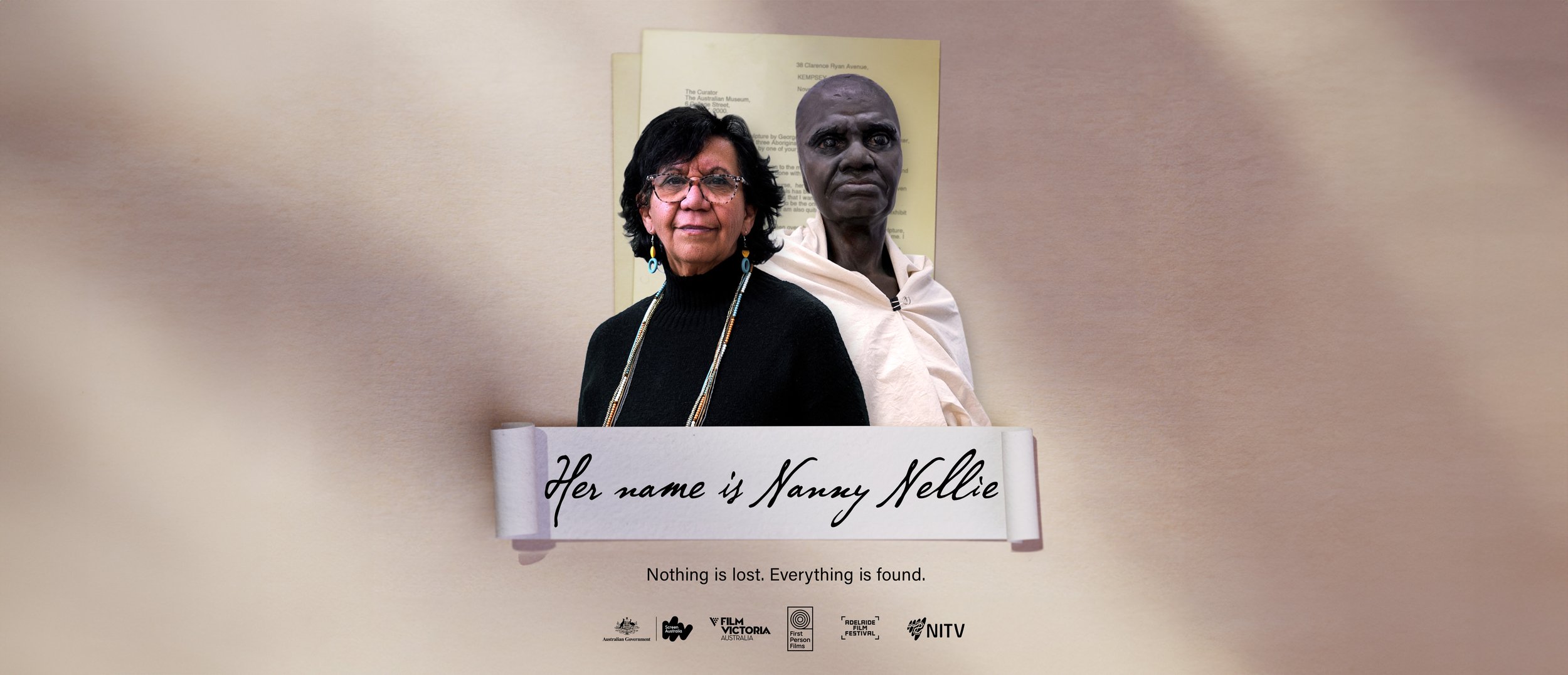
This 79-minute documentary follows a family's journey to reclaim their history after discovering their ancestor Nanny Nellie was one of three nameless Aboriginal statues commissioned by the Australian Museum in 1925.
Director Daniel King and his great-aunt Irene Walker work to reconnect families with their ancestors' statues and ensure they're displayed with their proper names, identities and dignity.
At the Institute, we're not just developing theory—we're living our Ways of Working daily. One powerful practice we've implemented is our "slow” Fridays approach, which has transformed how we make sense of the world and systems around us.
Why slow Fridays?
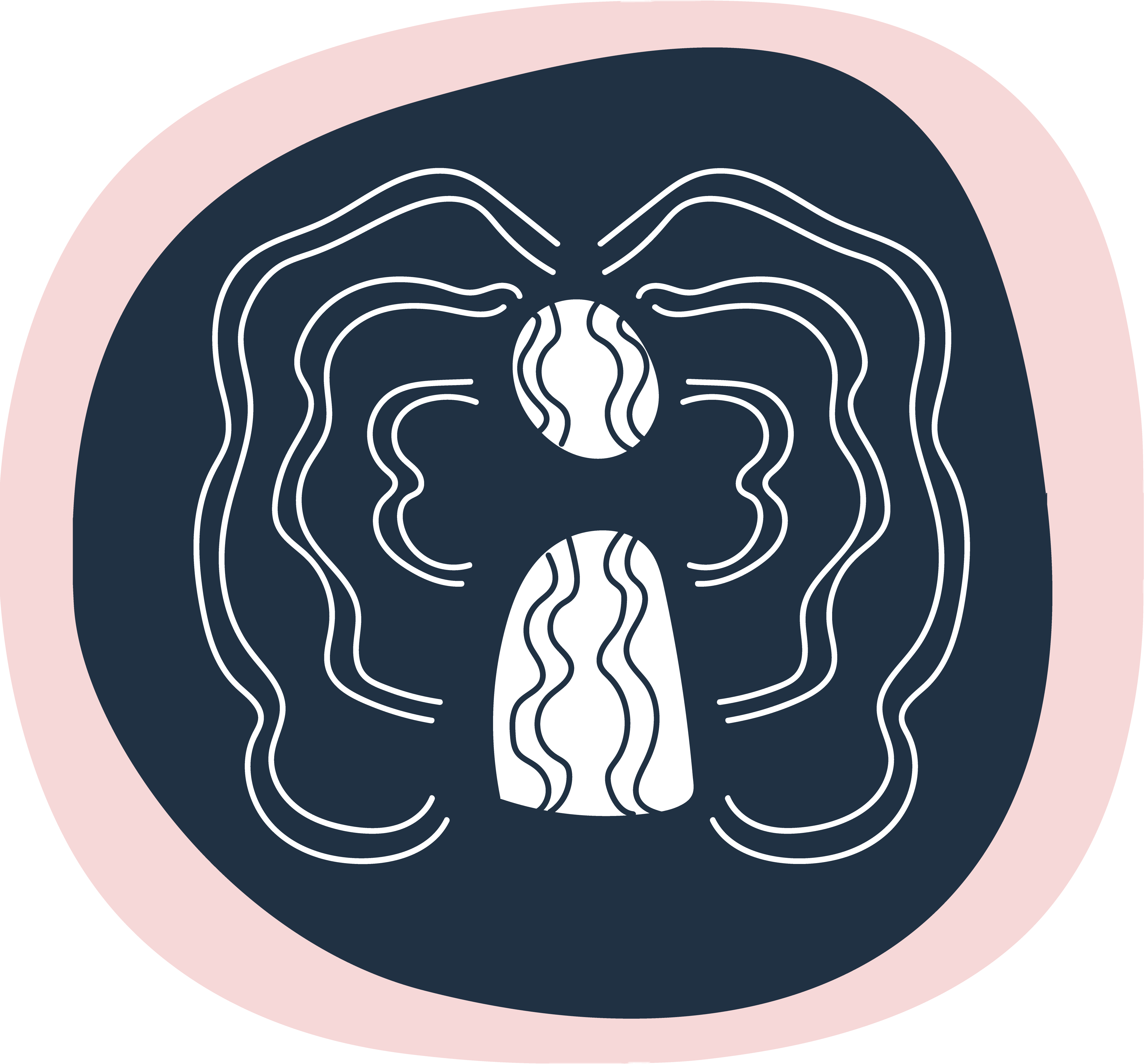
Slow Fridays mean limited meetings and creating space to be focused and intentional about our work. Whilst regular collaboration and connection with our team and partners is critical to pursuing systems change, so too are moments for individual thinking, reflection and sense-making. Constant meetings can fragment attention and prioritise quick decision-making over deep reflection.
Instead, we're creating space for:
This practice reflects our commitment to balancing productivity with wellbeing and creating space for innovation. Following our slow Fridays, our team reflects back how we spent this time and shares the development of our ideas, keeping us accountable.
How You Can Try This:
One team member shared: "At first I worried about 'losing' a workday, but now I see Friday's quieter rhythm creates our most innovative thinking. Ideas that seemed impossible on Wednesday often find their path forward in Friday's spaciousness."
By modelling a different approach to time, we're challenging the colonial notion that productivity must follow rigid schedules rather than natural rhythms. As the Change Agenda highlights, when we embed these approaches in everyday workplace practices, we create the conditions for transformation to emerge.